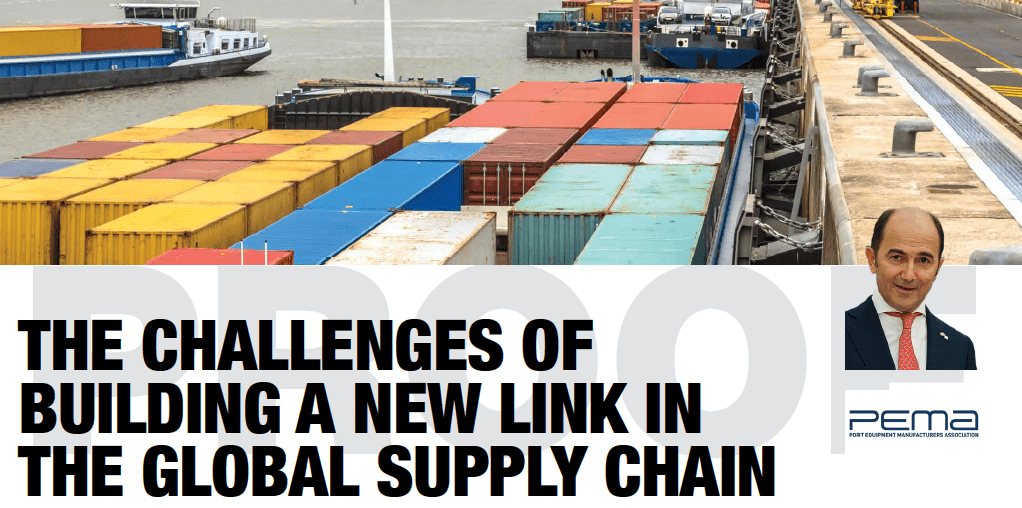
PEMA president calls on ports to increase investments in innovations in a post-Covid world
Framing the impact of the Covid-19 pandemic for ports and terminals as “an unprecedented time to innovate”, PEMA president Ottonel Popesco advocates transformative change to global supply chains in an opinion piece published by Port Technology International(PDI 100 edition) that highlights the effects of a potential shift from globalisation to regionalisation.
Writing in a personal capacity in an article entitled Building a New Link in the Global Supply Chain, the Port Equipment Manufacturers Association president and chairman argues that “the crisis presents unique conditions that allow innovators to think and move more freely to create rapid, impactful change, apply supply chain breakthroughs, and new collaboration techniques.”
Asking whether the impact of the global pandemic could signal the demise of globalisation, Popesco outlines three likely scenarios in a post-Covid world and how these might impact organisations’ supply chains. The first, localisation, would see the collapse of global value chains as national governments adopt protectionist policies forcing companies to relocate closer to home, undermining the importance of inter-regional and intra-regional value chains.
Second, regionalisation, in which the pandemic drives the development of inter-regional value chains. Lastly, the continuation of the actual globalisation, with global trade and supply chains returning to something resembling pre-Covid levels.
Unless governments make mandatory regulations, the regionalisation and globalisation are the two realistic scenarios and any change to the actual system, will take years to implement requiring customisation for each organization.
Post-pandemic landscape
Popesco presents a number of conclusions in terms of impacts for ports and terminals in the wake of COVID-19. These include a potential short term reduction in sea trade volumes with a strong developments towards the end of the sanitary crisis, eventual reduced investment in larger container vessels, and greater integration of groupings of ports and shipping lines and national supply chains.
He also anticipates a rebound in retrofitting rather than investment in new terminals and equipment with the exception of the projects financed by the governments stimulus, continued growth in digitalisation and preventative maintenance. He also anticipates a surge in demand for technologies that reduce environmental impact like electrification although he argues that continued demand for automation systems may be mixed, with an overall softening in interest being potentially offset by renewed demand for automation in specific areas such as mooring and mobile yard equipment.
Popesco concludes on an upbeat note, predicting that sea trade will recover fast in the medium to long term once the effects of the pandemic subside. He calls on port equipment manufacturers to “stay close – even virtually – to your customers.”
About PEMA
Founded in 2004, PEMA provides a forum and public voice for the global port equipment and technology sectors. The Association has seen strong growth in recent years, and now has more than 120 member companies representing all facets of the industry, including crane, equipment and component manufacturers, automation, software and technology providers, consultants, and other experts.
